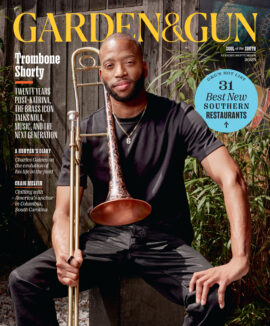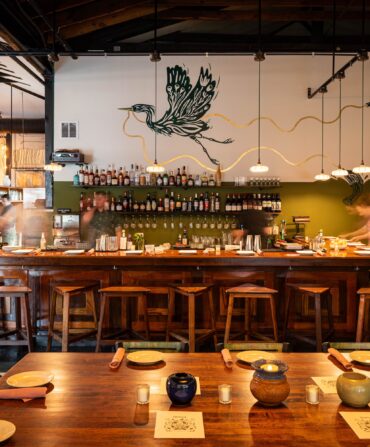
Photo: Huge Galdones for The James Beard Foundation
Kwame Onwuachi, Rising Star Chef of the Year.
Shortly after the who’s-who of the culinary world moved in from the red carpet to take their seats at Lyric Opera of Chicago for last night’s 2019 James Beard Foundation Awards ceremony, twenty-nine-year-old Kwame Onwuachi, the chef at Kith and Kin in Washington, D.C., took home the first medal of the night: Rising Star Chef of the Year. In his acceptance speech, Onwuachi, who grew up in the Bronx and Nigeria and whose family hails from Louisiana, noted that eight years earlier he was selling candy in the New York subway with dreams of becoming a chef. “I understand I have a job to do. We all do,” he said from the podium. “We can just continue to put out great food and give great service, or we can advocate for something: To inspire the next generation and to include everyone in the conversation of cooking.”

Photo: Huge Galdones for The James Beard Foundation
Mashama Bailey, Best Chef: Southeast.
This left the audience buzzing. “To have [Onwuachi] recognized so early in the night was fantastic,” says Hanna Raskin, the food editor and chief critic for Charleston’s Post & Courier newspaper who also serves on the James Beard Foundation’s restaurant and chef awards committee for the Southeast region. “People were thinking, ‘This is the way the whole night might go.’”
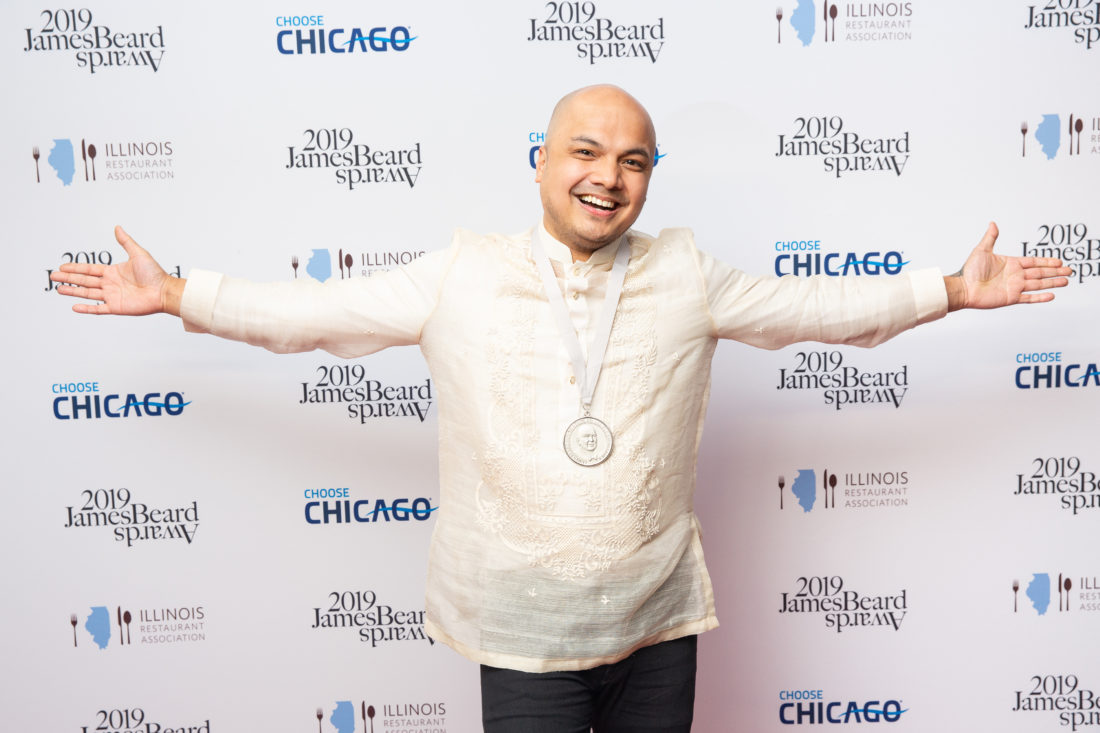
Photo: Huge Galdones for The James Beard Foundation
Tom Cunanan, Best Chef: Mid-Atlantic.
People were right. Throughout the ceremony, an unprecedented number of Southern women, African American, Asian American, and LGBTQ chefs took the stage to accept the highest honors in the hospitality industry. The shift is the direct result of a change in how the James Beard Foundation structures its voting committees to better reflect U.S. census demographics. Representation is important. Those committees whittle tens of thousands of nominations into a list of semifinalists, which are then further trimmed by about twenty judges in each region. A final voting body of more than 300 people from all facets of the food and beverage industry then votes on the winners.

Photo: Huge Galdones for The James Beard Foundation
Kelly Fields, Outstanding Pastry Chef.
This year’s medalists represent not just a move toward inclusivity in the industry, but also the Southern momentum building throughout the country’s culinary circles. Take Kelly Fields, for instance, who won Outstanding Pastry Chef for the confections she creates at her bakery-café, Willa Jean, in New Orleans. Her win marks the second consecutive medal in the pastry category for a Southern woman; last year, Highlands Bar & Grill’s Dolester Miles took the award home to Birmingham. In the Southeast, Mashama Bailey of Savannah, Georgia’s the Grey won the best chef award just a year after Charleston, South Carolina pit master Rodney Scott. “It’s a big deal for the Southeast to have African American winners back to back,” Raskin says. “Every speech given was a call for inclusivity and for the South to be a leader. [The industry] still has a lot of work to do, but we’re moving things forward.”

Patrick O’Connell, recipient of a Lifetime Achievement Award.
The Southern hits kept coming. In the Best Chef Mid-Atlantic category, Tom Cunanan, who was born in the Philippines and raised in Maryland, won for the innovative Filipino-American cuisine he serves at his D.C. restaurant, Bad Saint. Patrick O’Connell, the chef and proprietor of the Inn at Little Washington in Washington, Virginia, was recognized with a Lifetime Achievement Award. And while his contributions to fine dining, which has won the inn three Michelin stars, are a huge part of his impact on the region, so is his advocacy for causes like the Human Rights Campaign. When long-beloved Vishwesh Bhatt accepted his Best Chef South medal for the pioneering blend of Indian and Southern fare he serves at Oxford, Mississippi’s Snackbar, he reminded the audience of a universal truth: “Let’s remember that we do this because we love doing it.”
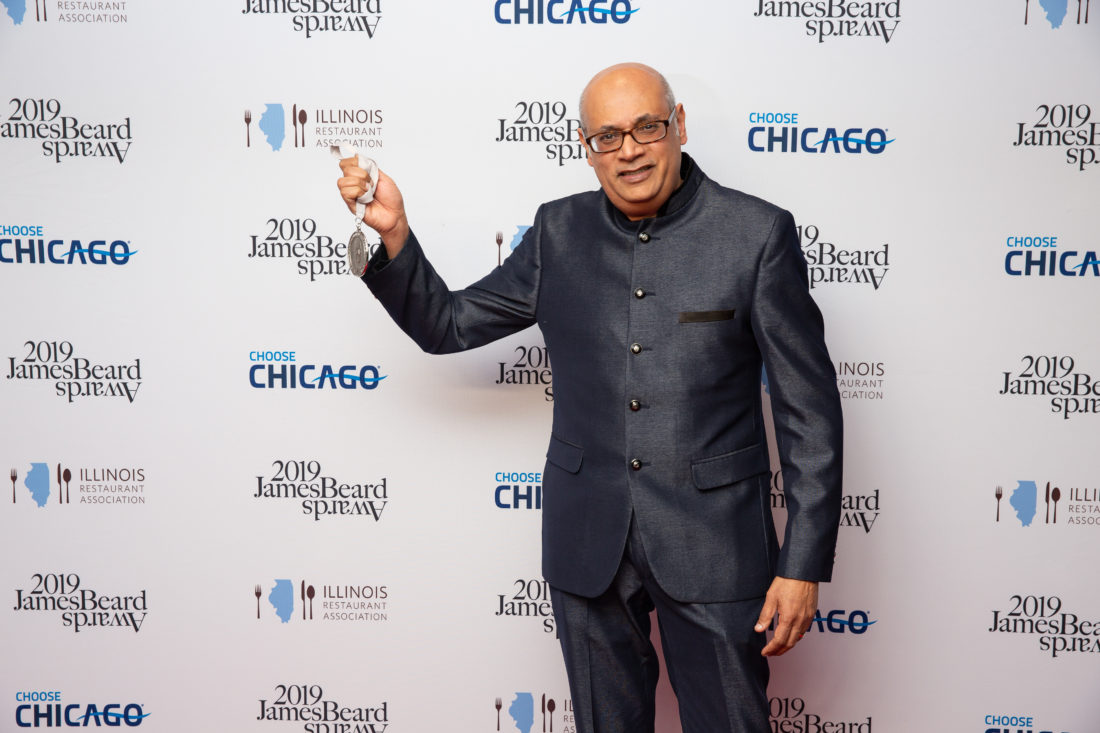
Photo: Huge Galdones for The James Beard Foundation
Vishwesh Bhatt, Best Chef: South.
In another milestone for a Southern woman, Ashley Christensen, who helms a fleet of Raleigh restaurants including Poole’s Diner, took home one of the night’s highest accolades: Outstanding Chef. “I feel so tremendously honored to have received this acknowledgement on behalf of my team and our restaurants, but I feel an extra sense of pride to have won this award as a Southern chef,” Christensen says. “Our industry is drawing so much strength and momentum and positive change based on a new commitment to open dialogue and vulnerability—and I think that this dialogue is especially present and active in the South right now. I feel driven and inspired by the conversations and experiences I’m having with so many chefs in our region. It’s never been a more exciting time for the industry.”
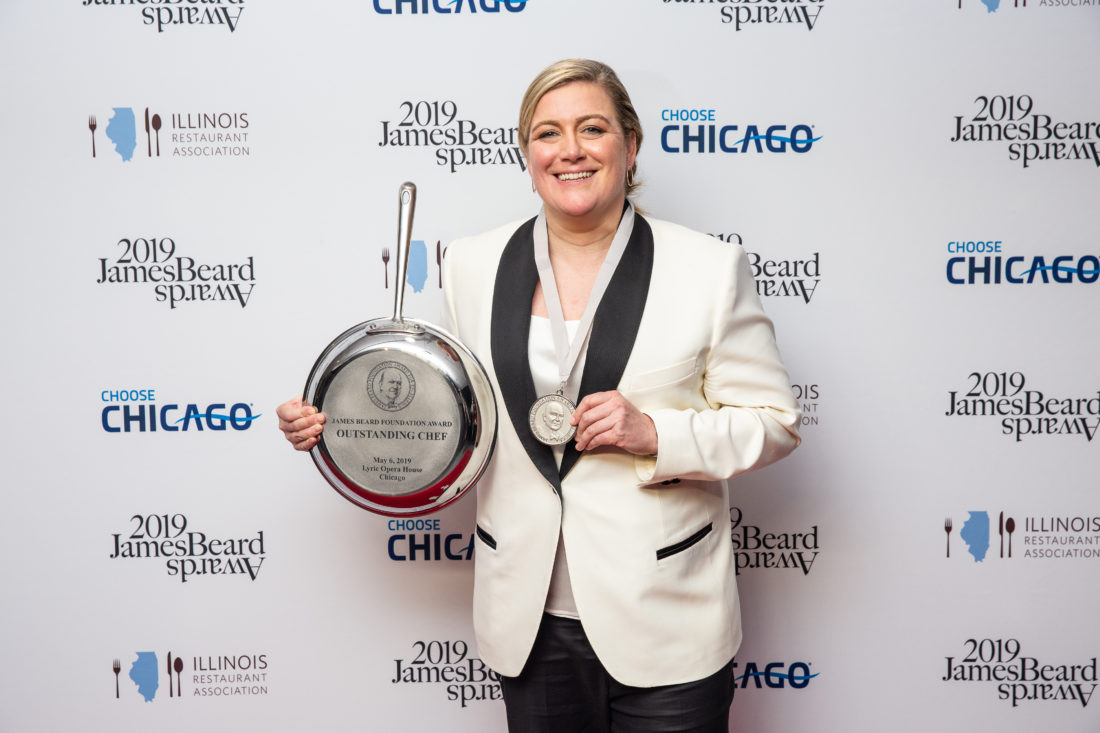
Photo: Huge Galdones for The James Beard Foundation
Ashley Christensen, Outstanding Chef.
Raskin agrees. “One ceremony doesn’t change the course of the industry,” she says. “But this is a good indication of the South leading the way. We have an obligation not just to improve our own region but to have an effect on the rest of the country.”

